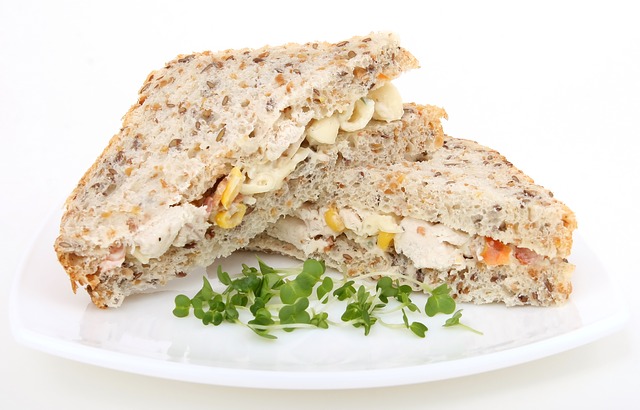The Secret Recipe for Learning: How Good Nutrition Supports Math Success

Proper nutrition directly affects cognitive function. Studies show a well-balanced diet improves concentration, memory, and problem-solving skills. This means that what students eat can impact their ability to excel in math. The brain needs the right nutrients to function optimally, just like a car requires high-quality fuel to run smoothly.
Parents looking to give their children an academic edge should consider how food influences learning. A strong foundation in math requires consistent mental effort. Enrolling a child in a quality math I tutor Charlotte program can help, but the right diet provides the brainpower needed to maximize learning potential. Combining a nutritious diet and effective tutoring can create a solid pathway to academic success.
Brain-Boosting Foods for Math Success
Some foods enhance memory, focus, and cognitive processing. Incorporating these into daily meals can make a difference in academic performance. The brain is constantly working, requiring a steady supply of nutrients to perform at its best.
Omega-3 Fatty Acids
Found in salmon, walnuts, and flaxseeds, omega-3s are essential for brain health. They help improve memory and problem-solving skills, making math comprehension easier. Research suggests that children who consume adequate amounts of omega-3s tend to perform better in school, particularly in subjects requiring logical thinking, like math.
Leafy Greens
Spinach, kale, and broccoli contain vitamins and antioxidants that promote brain function. These vegetables help reduce inflammation and support neuron communication. A diet rich in leafy greens has been linked to slower cognitive decline, which is crucial for developing math skills over time.
Whole Grains
Foods like oatmeal, brown rice, and whole-wheat bread provide a steady energy supply. This helps students maintain focus throughout long study sessions. Whole grains also contain fiber, which helps regulate blood sugar levels, preventing energy crashes that make it difficult to concentrate.
Eggs
Rich in choline, eggs support memory and cognitive development. A breakfast with eggs can set the tone for a productive school day. Choline plays a role in neurotransmitter production, which is vital for learning and retaining new mathematical concepts.
Berries
Blueberries, strawberries, and blackberries contain antioxidants that protect brain cells and improve memory recall. These fruits also help reduce oxidative stress in the brain, ensuring students can recall information quickly and accurately.
Hydration: The Key to Focus
Water is just as important as food when it comes to brain function. Dehydration can cause fatigue and reduce concentration, making math problems harder to solve. Encourage kids to drink enough water throughout the day to keep their minds sharp. A hydrated brain can process information more efficiently and maintain focus for longer periods.
Adding hydrating foods like cucumbers, oranges, and watermelon to meals can also contribute to better hydration levels. Avoiding sugary drinks like sodas and excessive fruit juices can prevent energy crashes and mood swings that interfere with learning.
Reducing Processed Foods for Better Learning
Highly processed foods filled with sugar and unhealthy fats can lead to energy crashes and poor focus. Reducing junk food intake helps children maintain stable energy levels and improves their ability to tackle complex math problems. Foods high in refined sugar can cause spikes and dips in blood sugar, leading to sluggish thinking and reduced attention spans.
Instead of processed snacks, choose homemade alternatives such as granola bars, fruit with nut butter, or yogurt with nuts and seeds. These options provide essential nutrients while keeping sugar intake in check.
How Parents Can Support Healthy Eating
Making small changes in daily routines can improve a child’s diet and learning ability. Parents play a significant role in shaping a child’s eating habits, and incorporating healthy foods at home can lead to better performance in school.
Plan Nutritious Meals
Preparing balanced meals with proteins, healthy fats, and whole grains ensures kids get the nutrients they need for brain function. Planning meals ahead of time can prevent last-minute unhealthy food choices.
Encourage Healthy Snacks
Instead of chips or candy, offer snacks like nuts, yogurt, or fresh fruit. These options provide lasting energy and keep the mind engaged. Keeping various nutritious snacks available makes it easier for kids to make healthy choices.
Involve Kids in Cooking
Teaching children about nutrition through cooking helps them make healthier choices and understand the value of good food. Kids who participate in meal preparation are likelier to eat the foods they help prepare, making it a fun and educational experience.
Maintain a Consistent Eating Schedule
Regular meals and snacks prevent energy dips, keeping kids focused during school and homework. A structured eating schedule ensures the brain receives steady nutrients throughout the day.
READ ALSO: Raising Your Teen’s Awareness about the Benefits of Healthy Snacking
Fueling the Brain for Academic Success
Success in math isn’t just about practice and tutoring. A well-fed brain absorbs information better and retains knowledge longer. By prioritizing nutrition, parents can support their children’s ability to learn, focus, and excel in math. Combining a healthy diet with consistent study habits can help students reach their full potential in school.
Investing in good nutrition today sets children up for a lifetime of cognitive health. By making mindful food choices, students can improve their math skills and overall academic performance. A strong mind starts with a strong diet!


